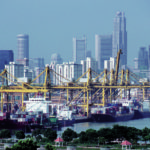During the crisis of the shipping industry the competition among the key maritime centres has become more evident than ever. Experts from the Netherlands, Singapore and Cyprus give insight into the question how their local tax regime works
The German tonnage tax rules have been in force for more than ten years. For most of those years it[ds_preview] has fulfilled its task to bring back jobs in the maritime industry that have previously been shifted abroad and to create new ones. But due to the crisis of the shipping industry many shipping companies today are pondering to fully or partially move abroad. Among the criteria for this decision are – as in any industry – the costs related to the business in a certain location. These are first and foremost of course labour costs and secondly local taxes.
When it comes to tonnage taxation one might ask how this could affect the decision to invest in a certain location rather than in another. Are not all tonnage tax regimes almost the same? Far from that! Although the special taxation rules for shipping companies bring about high savings compared to the regular taxation scheme, there are administrative costs related to the tax handling which differ from place to place.
1. Germany
German tonnage taxation was introduced in 1999. The rules remain largely unchanged. In 2006 the right to apply for tonnage taxation in the third year of operation was abolished. Until then investors could offset losses from the first three years of operation against positive income from other sources and could then switch to tonnage taxation. Today tonnage taxation has to be elected in the year the vessel is being acquired or delivered from the yard. If elected, a shipping company calculates the taxable income based on the net tonnage of the vessel. This fixed income is then subject to the regular tax rates of each investor and also to local trade taxation which is to be paid by the shipping company. Overall this results in a lump sum taxation which leaves the investor of a shipping company with only a fraction of taxes to be paid compared to the regular scheme of income computation.
The price to be paid for this tax advantage seems to be straight forward. Tonnage taxation may only be elected by shipping companies operating a vessel in international traffic. And these vessels have to be managed domestically. Furthermore the shipping company is bound by the election for ten years. But a closer look reveals that the requirement of managing the vessel domestically is a crucial point. The vessel is being operated in international traffic. Which management tasks can possibly be performed from Germany and which tasks have to be performed abroad? Also, what exactly is meant by the term »ship management to be performed almost exclusively from Germany«? Are these only those tasks crucial to the ship’s operation such as crewing, chartering, maintenance? Or are these also those tasks fulfilled voluntarily? One example would be the presence of a special surveyor during repairs to ensure company maintenance standards. And when exactly is a task fulfilled in Germany »almost exclusively«?
The tax authorities on the one hand scrutinise these points thoroughly and on the other hand do not provide reliable criteria to answer these questions in a way that ship operators can be sure to fulfil tonnage tax requirements. For example: While it is clear that a vessel which needs repair does not necessarily have to be repaired domestically, crewing of the vessel’s officers is an issue of dispute. Crewing of the master and officers is seen by the tax office as an important management duty which has to be fulfilled domestically. In practise this is done through crewing agencies which in all cases operate also abroad to hire officers for example from Russia or the Ukraine. Some tax officials however view this as management duties performed abroad and question the legality of this practise in view of the tonnage taxation. Their argument is that in many cases the crewing agency will perform most tasks necessary to hire a certain person under the crewing agreement. This means that the crewing is not »almost exclusively« being performed domestically, but it is to a large extent performed by the agency abroad. Today it is unclear whether the management task at stake here is simply the supervision of the crewing agency and the final approval of a candidate to join the ship or if it is the crewing itself. As it is unclear what exactly forms the management duty it remains unclear whether this management is being done domestically or abroad.
Equally so any supplies or other contracts negotiated and signed by the domestic management along with other group companies of an international ship operator are viewed to be in conflict with German law. For example insurance contracts providing group wide coverage for the entire fleet of an international operator are seen as not in line with tonnage tax requirements because the contracts have not been negotiated by the German shipping company alone.
On the other hand the German tax authorities have shown a remarkable relaxedness when it came to lay ups of vessels during the crisis. The question here is whether a vessel can still be »operated in international traffic« if in fact it is in either cold or warm lay-up. In all cases discussed with the authorities it was evident that the effects of the crisis were not meant to be worsened by depriving the shipping company from the benefits of tonnage taxation. Also the possible loss write off, should the tonnage tax privilege be revoked, may have played a role in this decision.
The uncertainty in some of the tonnage tax requirements lead to considerable follow up costs for the shipping companies. These – as mentioned above – play a part in the decision making process whether or not to establish some shipping activities abroad. Speaking from a taxation point of view a higher tax which is certain in its requirements will be more readily accepted than a lower tax which to some extent is unpredictable. In terms of the international competition among key shipping locations taxation is just one of the issues. The highly qualified German workforce in the industry is a strong argument for a shipping company to stay rather than to move abroad. But as the markets are more and more volatile and unpredictable the less it is acceptable for the tonnage taxation to become a pitfall rather than a subsidy and a reason to invest domestically.
Two other aspects still add to the situation. One issue is insurance taxation and the other is the wage taxation of German seafarers. Germany has introduced a tonnage taxation also to increase the German merchant fleet. The number of vessels under German flag had decreased for many years before the tonnage taxation was introduced in 1999. In order to increase the number again the German government has agreed with shipping companies for them to bring voluntarily about 500 vessels under German flag. Flying the German flag leads to an increase in operational costs due to higher labour costs compared to other flag states. For this the German government granted an allowance for all seafarers employed on a ship flying the German flag. This subsidy has recently been cut significantly amidst the current crisis and in view of the fact that currently the target of about 500 vessels under German flag is not fulfilled. For all those shipping companies who have brought their vessels under the German flag relying on the allowance to lower their wage costs the curtailment of this subsidy increases the difficult situation in the current markets to a great extent.
Also the insurance taxation has become an issue during the last year. Insurance contracts covering domestically registered vessels are subject to a VAT like insurance premium taxation. This concept is not completely unknown in other European countries. However, it comes as a surprise that vessels flying a foreign flag still qualify for the insurance premium tax. This is due to the fact that the vessel which is owned by a German shipping company remains in the German ship register even if it is allowed to fly a foreign flag. And also the fact that the ship managing company is often co-insured shall lead to a taxation levied on the premium. In addition to this it is the duty of the insurance company to pay German insurance premium tax amounts. This also comes as a surprise to foreign insurance companies who simply assume that German tax issues are being dealt with by their German clients. But they could not file the necessary tax returns and pay the tax amounts even if they wanted to. The regular tax rate of 19 % of the premium spices this issue up to a costly matter, even though hull & machinery insurances are only taxed at a rate of 3 %.
Overall the above examples may show how taxation issues affect the competition among the maritime centres of the world. Already many shipping companies feel a need to be present in Asia or elsewhere simply to be closer to their clients and their client’s markets. Even though taxing issues will never be the sole reason to making a decision among several possible business locations, German taxation rules currently not always encourage the taxpayer’s belief that the system is solid and predictable.
2. The Netherlands
Since 1996, the Netherlands has had a special tax regime for shipping companies: the tonnage tax regime. Under this regime, these companies can opt to determine their taxable profit based on the net tonnage (NRT) of the vessels instead of the actual profits. This can result in a low effective tax rate. For applying the tonnage tax regime a request must be filed with the Dutch tax authorities. If granted, the tonnage tax regime will in principle apply for a period of ten years. A request should be filed in the first qualifying year. Every ten year a shipping company may decide to opt for to continue the application of the tonnage tax regime. Alternatively, they may decide to return to the normal tax regime. The German regime looks a lot like the Dutch regime, due to the fact that the German regime is based on the Dutch regime.
The income of the operation of a vessel in international traffic or at sea used for the following activities may fall within in the scope of the tonnage tax regime:
• vessels used for the international transport of people and goods (according to recent case law this may also cover cruise vessels);
• vessels used for the transportation of people or goods overseas for the purpose of the exploration or exploitation of natural sources at sea (natural sources includes wind);
• vessels used for the exploration of the sea bed (research vessels);
• vessels used for cable laying or pipe laying on the sea bed;
• vessels providing lifting services at sea for vessels or installations for exploring or exploiting natural resources at sea (crane vessels).
Furthermore the income derived from vessels used for the following activities may fall in the scope of the tonnage tax regime:
• dredging vessels (only the transportation activities qualify);
• (ocean) towage and auxiliary (salvage) activities at sea to vessels (harbour towage activities are excluded).
The types of vessels that fall within the scope of the Dutch tonnage tax regime is wider compared to the German tonnage tax regime. Furthermore international traffic is not required in all cases.
A shipping company is considered to »operate a vessel« if the management of the ship is at least for 30 % performed in the Netherlands. Bareboat chartered in vessels are included, bareboat chartered out vessels are not.
In order to qualify for the regime, a taxpayer should own (or co-own) at least one vessel or have a vessel chartered in on a bareboat basis. Economic ownership of a vessel can qualify as well. For the ships owned and bareboat chartered in, in principle an EU/EEA flag will be required. In addition commercial management, crewing and technical management, time charter and voyage charters etc. qualify as well for the Dutch tonnage tax regime.
The general rule with respect to the level of management in order to apply the tonnage tax regime is that a vessel can only benefit from the Dutch tonnage tax regime in case at least 30 % of the overall management of the vessel is performed in the Netherlands. When the law was introduced in 1996, four types of management were recognized: strategic management, crew management, technical management and commercial management. It was stated that in case a taxpayer was the owner of the vessel, in principle the strategic management would constitute at least 30 % of the total management of the vessel (strategic management was defined as the decision to buy/sell the vessel, and to determine how the other management functions are performed, e.g. decide on the nationality of the crew, level of maintenance etc.). It is not required that these services are all performed by the taxpayer. Some activities may be outsourced to other (group) companies in the Netherlands in order to meet the 30 % criterion, which makes the Dutch regime more flexible compared to the German regime.
Furthermore, the Dutch Revenue is willing to conclude advance agreements with businesses regarding the application of the tonnage tax regime. This can include an advance agreement of the level of management to be conducted in the Netherlands. Thus certainty for shipping companies is provided, which is a major advantage.
Moreover, a wage cost deduction (subsidy) is, under certain conditions, applicable to vessels that fly the Dutch flag and are operating mainly at sea in international traffic. The remittance reduction for oceangoing shipping amounts to 40 % (used to be 38 %, recently extended) of the seafarer’s taxable salary for seafarers resident within the EU/EEA. Making the Dutch system more beneficial seems to be the opposite direction of the German developments.
3. Cyprus
Cyprus historically has been a port for ships trading within the waters of the Mediterranean Sea and not only. Today, after the implementation of a new tonnage tax system, it expects to better its position which today is third place in Europe and tenth internationally, as a tax beneficial jurisdiction for the shipping industry.
The new tonnage tax system (TTS) has been approved by the European Commission in March 2010 and has been in force since the 2010 fiscal year. Like the German tonnage tax system, this new legislation gives an option to the ship owners to opt being subject to the TTS or remain under the ordinary corporate tax which is a flat rate of 10 %. Like Germany, once you elect TTS you are obliged by it for a period of ten years, otherwise fines are applicable.
Previously, Cyprus tax legislation was beneficial only for owners of Cyprus flag vessels and ship managers where their profits were deriving from the exploitation of vessels in shipping activities only. The new regime extended these benefits to charterers and foreign flag owners and crew management companies. The activities recognized under this scheme also have been broadening up, i.e. now it covers any profits from the disposal of a vessel. However, not everyone is eligible under the new TTS. Tax authorities will allow an owner or a charterer or a ship manager who owns, charters or manages a qualifying ship in a qualifying shipping activity to opt the TTS. Two main questions arise here. What is a »qualifying ship« and what is a »qualifying shipping activity«?
A »qualifying ship« is any seagoing vessel certified under international or national rules and regulations, being registered in a ship register of the IMO or ILO recognised by the republic of Cyprus. Please note that some types of vessels are specifically excluded and cannot become entitled as »qualifying ship« i.e. fishing vessels and tug boats. Further, any vessel registered and flying an EU or EEA flag can be qualified. A provision for non-EU vessels allows ships to opt TTS provided they fulfil some requirements.
In answering the second question, a »qualifying shipping activity« is any commercial activity that constitutes maritime transport (MT), including ancillary activities such as cable laying or dredging, or ship management (SM).
In order to qualify for the TTS ship management companies must have a fully-fledged office within the Republic of Cyprus and their employees must be residents of the republic by a 51 % majority. In connection to crew management and technical management, commercial management can take place from any place within the EU, provided that two thirds of the total tonnage is managed within the EU.
It should be noted that the tax authorities in an attempt to reduce any manipulation by those qualified for the TTS they have implemented arm’s length rules which are applicable on:
• transactions between companies qualifying for tonnage tax and non-qualifying Cypriot companies (in the case of related companies);
• transactions between companies qualifying for tonnage tax and non-qualifying non-Cypriot companies (in the case of related companies);
• transactions between activities qualifying for tonnage tax and non-qualifying activities of the same qualifying company.
Having described the TTS, the tax benefits that someone may derive out of it should also be outlined. The law provides for a number of tax benefits, the most important being that:
• profits from the operation of a qualifying ship from a qualifying shipping activity are tax exempt;
• dividends paid directly or indirectly out of profits from a qualifying shipping activity are tax exempt;
• interest income resulting on working capital or from the financing, operation and maintenance of a ship (excluding interest on funds used for investment purposes) is tax exempt;
• profits made from the disposal of a ship or from the disposal of a share in a ship are tax exempt; and
• profits from the disposal of shares in a ship-owing company are tax exempt.
Under the TTS, tax is calculated on the net tonnage of the qualifying ship based on a range of bands and rates which range from 36.50 € for every 100 tons for ships with a net tonnage of up to 1.000 tons to 12.78 € for every 100 tons for ships with a net tonnage in excess of 40.000 tons.
It is evident that Cyprus TTS in comparison to German tonnage system is much simpler. Keeping things simpler gives to the tax payers more certainty since they can easily understand the rules and make their tax planning in advance.
4. Singapore
Singapore does not operate a tonnage tax system. Instead it adopts a liberal shipping policy which encourages companies to both register their ships in Singapore and also to locate their shipping and marine-related business in Singapore.
In order to help promote its development into an international maritime centre, Singapore provides two major tax incentives for shipowners and operators:
• Singapore Registered Ships (SRS) scheme;
• Approved International Shipping (AIS) scheme.
4.1. SRS scheme
Under the SRS scheme, which was introduced over 40 years ago, full corporate tax exemption is granted to shipping income derived from freight, time and bareboat charter of ships which are registered with the Singapore Registry of Ships. The exemption applies to shipping income derived from the carriage of passengers, mails, livestock or goods and income derived from time charter and bareboat charter of the Singapore Registered Ships. No application is required for this exemption. Claim for exemption is made upon submission of tax return to the Inland Revenue Authority of Singapore. The exemption remains in force for as long as the ship remains a SRS. To qualify for this tax exemption, the income must be derived from a ship which is registered in Singapore, and is plying in international waters (this includes plying between Singapore and other countries and between places outside Singapore).
A shipping enterprise enjoying the tax exemption may be a shipowner or operator and may be resident or non-resident in Singapore for tax purposes. Therefore, the management and control of the shipping enterprise can be exercised anywhere. It is a requirement under the ship registration rules in Singapore that a Singapore incorporated company needs to be established in order to register the ships of the company under Singapore flag. The Singapore company can be 100 % foreign-owned and must have a minimum paid up share capital of 50,000 S$. For the Singapore enterprise, the income so exempt can be distributed as tax exempt dividends.
To encourage more vessels to be registered under the Singapore flag, the Maritime Port Authority (MPA) introduced the Block Transfer Scheme (BTS) to allow discounts on ship registration fees.
The discounts on ship registration fees under the BTS have to be applied for to MPA in the case of:
• 2 ships aggregating at least 40,000 NT
• 3 ships aggregating at least 30,000 NT
• 4 ships aggregating at least 20,000 NT
• 5 ships of any aggregate tonnage.
Ship Registration Fees:
• The fee for an ordinary registration is 2.50 S$ per NT subject to a minimum of 1,250 S$ (500 NT) and a maximum of 50,000 S$ (20,000 NT).
• The fee for registration under the BTS is 0.50 S$ per NT subject to a minimum of S$ 1,250 (2,500 NT) and a maximum of S$ 20,000 (40,000 NT) per vessel.
Annual Registration Fees:
The annual registration fee is 0.20 S$ per NT subject to a minimum of 100 S$ (500 NT) and a maximum of 10,000 S$ (50,000 NT).
4.2. AIS scheme
The Approved International Shipping scheme was introduced about 20 years ago to encourage major international shipowners and operators to locate in Singapore. Under the scheme the qualifying income of an AIS company derived from the operations of its non-Singapore flag ships will be exempt from corporate tax. Exemption is also extended to qualifying dividends from approved subsidiaries and associated shipping companies of the AIS company. The scheme is administered by MPA. The AIS status may be granted for an initial period of ten years in the first instance, subject to a five yearly review and may be extended thereafter upon re-application for two further incentive periods of ten years each. Therefore, application for approval has to be made to the MPA for this scheme.
To qualify for the AIS status, the company needs to fulfil the following requirements:
• be resident in Singapore (management and control of its shipping operations based in Singapore);
• be an established international shipowner and ship operator engaged in international shipping;
• have a direct attributable business spending in Singapore of at least 4 million S$ per year (e.g. manpower costs, rental, utilities, repairs, financial costs etc.);
• ownership of ships is encouraged, although not a pre-requisite;
• support and make significant use of Singapore’s trade infrastructure such as banking, financial, business, training, arbitration and other ancillary services.
The qualifying income under the AIS scheme includes:
• time charter fees and freight income derived from the operation of non-Singapore flagged ships;
• qualifying dividends from approved subsidiaries and associated shipping companies.
The AIS scheme also extends to qualifying income derived from the operation of floating production storage offloading vessels and floating storage offloading vessels (FPSO/FSO), towage vessels, salvage ships, dredgers, seismic vessels and semi-submersible oil rigs. To qualify, the company would have to have substantial operations and possess a team of professional expertise in Singapore. Income exempted under this scheme can be distributed as tax-exempt dividends.
4.3. Related concessions
As an administrative concession, tax exemption would be granted on gains derived from the sale of vessels under the AIS scheme and also those vessels which are registered under Singapore flag. This exemption is extended for a period of five years up to the year of assessment 2014. The exemption is expanded to include gains from the sale of ships which will subsequently be leased back and gains from the sale of shares in a Special Purpose Company (SPC) which holds ships.
With effect from 2005, foreign exchange and derivatives gains derived by Singapore flagged ships and AIS companies will automatically be regarded as shipping-related hedging gains, and will hence qualify for tax exemption under their respective schemes.
5. Summary
Shipping taxation is privileged in all four jurisdictions reviewed here. The European countries have similar tonnage tax systems while Singapore offers a complete tax exemption for qualifying activities. The similarity of the tax advantages, however, leads shipping companies to take a closer look at the specific rules. Thus the practical handling of the tax rules is decisive. Here we can see obvious advantages in those countries which offer an advanced ruling. In the Netherlands for example the tax office is able to review in advance if the tonnage tax requirements are being met. German tax law does not offer such advanced rulings with respect to the facts of a case. Only legal uncertainties may be subject to an advanced ruling. Also the application to the tonnage tax scheme does not constitute an approval by the tax office that the requirements are being met. Therefore, it is up to the German tax offices to review the facts of the case later on and possibly revoke the tonnage tax privilege for years past. This leads to an uncertainty for the tax payers and thus is a disadvantage in the competition with other maritime locations.
The requirement for the management being done almost exclusively in Germany is a more rigorous requirement than similar provisions in Cyprus or the Netherlands. Interestingly the AIS scheme in Singapore also requires the management to be done domestically but this does not constitute such practical problems as it does in Germany. Finally it is worthwhile to note that the scope of the tonnage tax regimes differs. While trading ships are covered by all schemes, special purpose vessels such as dredgers or cable layers or even FPSOs and FSOs are only covered in some countries but not in others. Thus it is clear that the choice between different shipping locations remains a difficult one. The differences between the taxation rules and their handling are not to be neglected when making this choice.
Authors:
Dr. Detlef Laub,
Lawyer and Tax Adviser, Partner at TPW Rechtsanwaltsgesellschaft, Hamburg,
detlef.laub@tpw.de
Ernst-jan Bioch,
Tax Lawyer at KPMG Meijburg & Co
in Rotterdam, bioch.ernstjan@kpmg.nl
Loucas A. Haviaras,
partner at Haviaras & Philippou L.L.C
in Cyprus, loucas.haviaras@hphlaw.eu
Lim Peng Huat,
Director of Taxes at Complete Corporate Services Pte. Ltd. Singapore,
phlim@complete-corp.com.sg
Dr. Detlef Laub, Ernst-jan Bioch, Loucas A. Haviaras, Lim Peng Huat






















